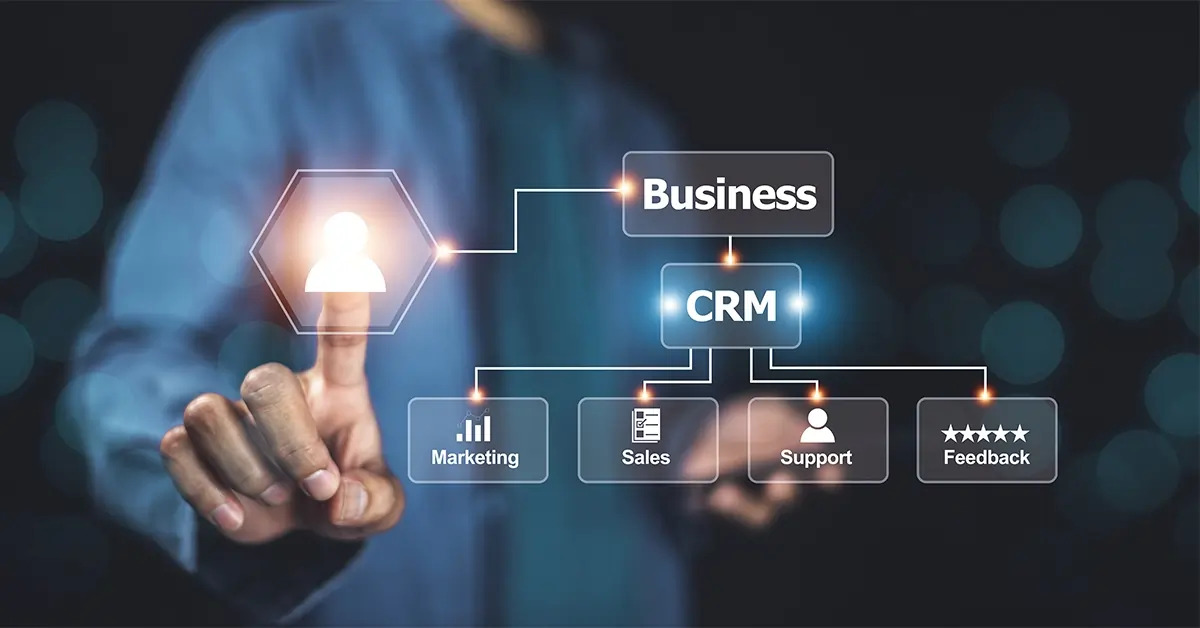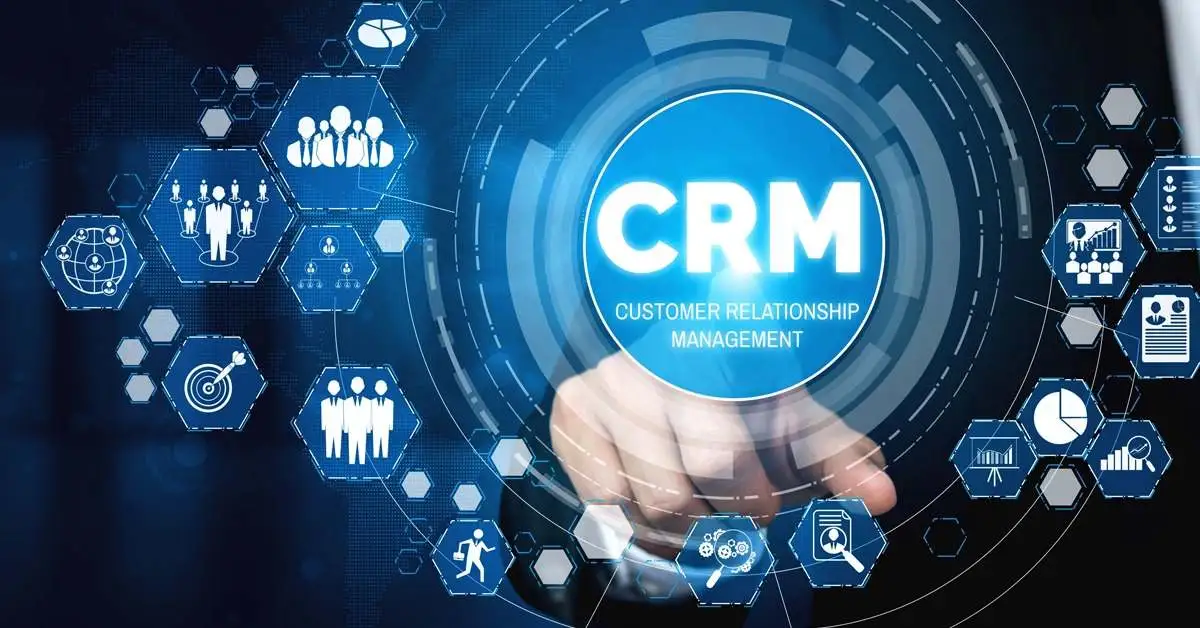How can CRM Benefit Your Marketing Campaigns?

You’ve invested countless hours and dollars into a marketing campaign, only to find subpar results. What went wrong? One of the biggest reasons might be the disconnect between your brand and your customers.
Understanding your customers and your goals is essential to creating successful marketing campaigns. CRM and marketing can come together to help you better reach and connect with your audience.
In fact, 92% of companies believe CRM technology is critical to achieving their goals. This staggering statistic underscores the power of CRM systems in driving successful marketing campaigns.
In this blog, we will explore how CRM can benefit your marketing campaigns and the top CRM marketing tools to look out for.
Table of Contents:
- What is CRM?
- What is CRM Marketing?
- How can CRM benefit Your Marketing Campaigns?
- Top CRM Marketing tools
What is CRM?
Customer relationship management (CRM) is a technology and strategy that helps you manage all interactions with existing and potential customers. It centralizes customer data across the lifecycle, making it easier to analyze interactions and improve the customer experience.
CRM aims to build stronger customer relationships by providing a more personalized experience.
What is CRM Marketing?
CRM marketing involves using CRM software and data to design, implement, and manage marketing campaigns.
You can leverage customer insights gained from CRM to personalize marketing efforts, segment audiences, and measure the effectiveness of marketing strategies.
It delivers more targeted and relevant messages to potential customers.
How can CRM benefit Marketing Campaigns?
You can create an effective strategy by combining CRM and marketing functionalities. This integration offers several benefits that make marketing campaigns more effective and improve efficiency. The benefits are as follows-
1. Personalizes marketing campaigns
CRM provides detailed information about customer preferences, behaviors, and past interactions.
You can use this data to create highly personalized campaigns, such as email campaigns, website content, and social media messaging that resonate with individual customers. This personalization leads to higher engagement and conversion rates.
2. Provides better customer segmentation
CRM helps target audiences based on specific criteria such as demographics, purchase history, and level of engagement.
By accurately identifying and grouping customers, CRM lets you personalize marketing campaigns to specific customer segments, ensuring your messages are relevant and engaging.
This targeted approach improves the effectiveness of your marketing efforts and results in higher conversion rates.
3. Helps with data-driven decision-making
CRM systems provide robust analytics and reporting tools that track real-time campaign performance.
This data-driven approach allows you to adjust your marketing strategies quickly and optimize them regularly.
4. Automates marketing processes
CRM platforms often have marketing automation features. The platform helps automate workflows for email campaigns, schedule social media posts, and manage customer follow-ups.
By automating processes, CRM saves valuable time and ensures consistency in marketing activities. This allows marketing teams to focus on strategic and creative tasks, which ultimately increases the effectiveness of marketing campaigns and leads to better results.
5. Drives higher ROI
By targeting the right audience with the right message at the right time, CRM-driven marketing campaigns are more likely to achieve higher conversion rates, leading to a better return on investment (ROI).
Top CRM Marketing Tools
When choosing a CRM, always consider your company size, marketing goals, and desired CRM features.
Remember, the best marketing CRM for your business depends on your unique needs and budget. Here are the top 5 marketing CRMs that you can consider-
1. Salesforce Marketing Cloud
Salesforce Marketing Cloud is a digital marketing platform developed by Salesforce. It offers a comprehensive suite of tools for managing the customer journey, email marketing, social media, and advertising.
Salesforce marketing cloud offers an integrated platform to help you create and manage personalized marketing campaigns.
Key Features
- Cross-channel marketing management
- Email marketing automation
- Social media marketing management
- Content and customer journey creation
- Ad management
- Real-time customer engagement analytics
Benefits: Highly customizable and scalable, unified customer profiles, rapid audience segmentation, and campaign management.
Drawbacks: Can be expensive for small businesses.
Pricing: Starts at $1,250 per month.
2. HubSpot Marketing Hub
HubSpot Marketing Hub is a popular marketing CRM tool developed by HubSpot.
It allows you to manage contacts, email marketing, content, marketing automation, and lead nurturing.
HubSpot is designed to help you grow by providing a comprehensive set of easy-to-use tools.
Key Features
- Lead nurturing workflows
- Email marketing automation
- Content management system (CMS)
- Marketing Analytics
- Social media integration
Benefits: All-in-one functionality, user-friendly interface, and strong customer support.
Drawbacks: Some advanced features are only available in higher-priced plans.
Pricing: Free tier available; paid plans include Professional- $800 (per month); Enterprise- $3,600 (per month)
3. Zoho CRM
Zoho CRM is a popular CRM platform developed by Zoho.
It is designed to manage sales, marketing, and customer support all in one central location.
Through a feature-rich platform, it aims to boost customer engagement and simplify the marketing process.
Key Features
- Marketing automation (Google Ads Integration, Event Management)
- Email campaign automation
- Advanced analytics and reporting
- Lead management
- Customizable dashboard
Benefits: Affordable pricing and extensive customization options, integrated suite of business applications.
Drawbacks: Interface can be overwhelming for new users, there is limited marketing automation in lower tiers, and it is not ideal for very small businesses.
Pricing: Standard- $9; professional- $16; enterprise- $28; ultimate- $31 (per user, per month and billed annually)
4. ActiveCampaign
ActiveCampaign is an all-in-one marketing automation platform that offers robust CRM capabilities, email marketing, and sales automation.
It is suitable for businesses of all sizes looking for a tool to automate their marketing tasks.
Key Features
- Email marketing automation
- CRM and sales automation
- Customer segmentation
- SMS marketing
- Advanced reporting and analytics
- AI-powered automation builder
Benefits: Great customer support and flexible pricing plans, easy-to-use
Drawbacks: It can be complicated for beginners and has limited integrations
Pricing: Starter- $8; plus- $49; Pro- $79; enterprise- $145 (per month)
5. Sugar CRM
SugarCRM is a flexible, highly customizable marketing automation tool that helps your sales connect to the right leads at the right time. It lets you create campaigns, engage with your audience, and anticipate customer needs.
Furthermore, it helps you optimize strategies, provide relevant content, and tailor your marketing campaigns.
Key Features
- Marketing automation
- Sales automation
- Customer support
- Reporting and analytics
- Customizable dashboards
- Generative AI
Benefits: Automated workflows and built-in analytics attract potential customers and create more opportunities.
Drawbacks: It can be complicated to set up and use.
Pricing: Essentials- $26; advanced- $119; premier- $189 (per user, per month and billed annually)
Bottom Line
CRM and marketing tools are game changers if your campaigns struggle to connect with your audience.
By leveraging data from a CRM, you can create personalized campaigns, target the right audience, and make data-driven decisions to optimize your strategy.
Investing in the right CRM and seamlessly integrating marketing functionalities can transform your marketing efforts.
Consider trying the CRM marketing tools mentioned above to find the tool that best suits your business needs and take your marketing efforts to the next level.
Related Post
Copyright © gocustomerexperience.com. All Rights Reserved.




